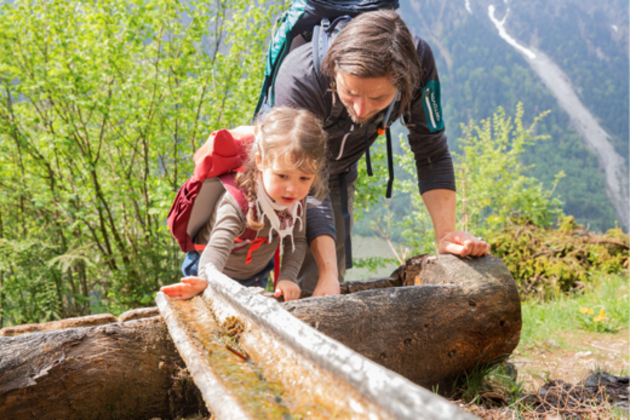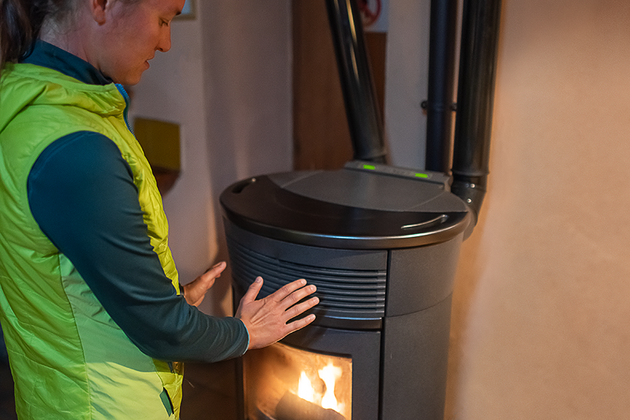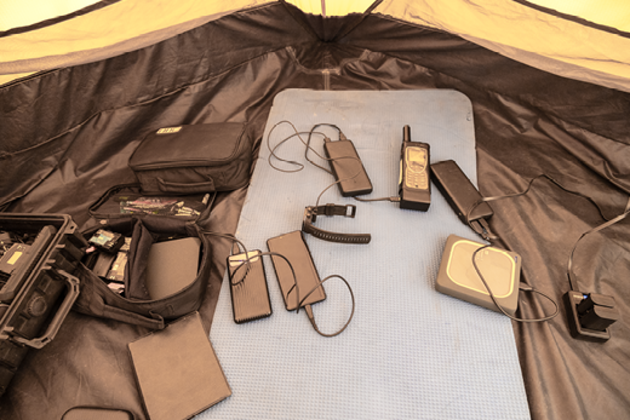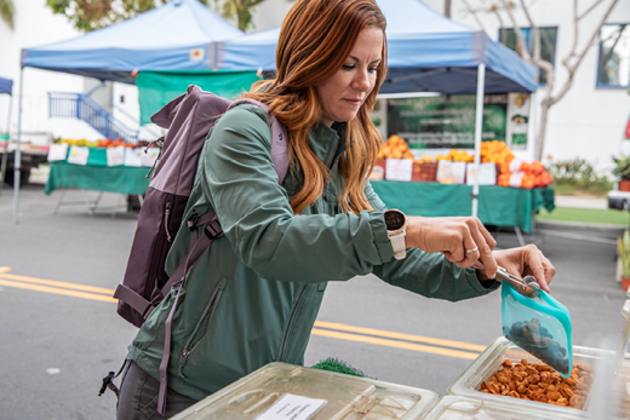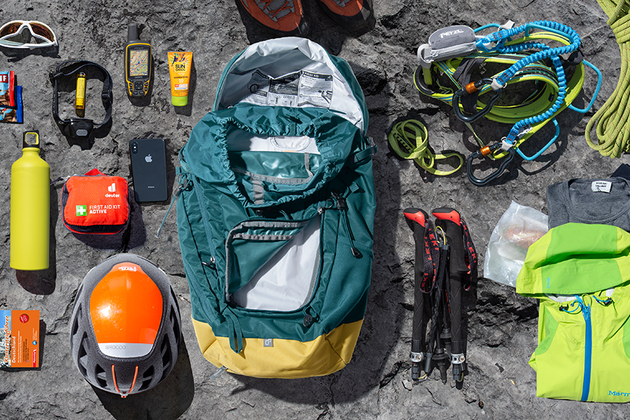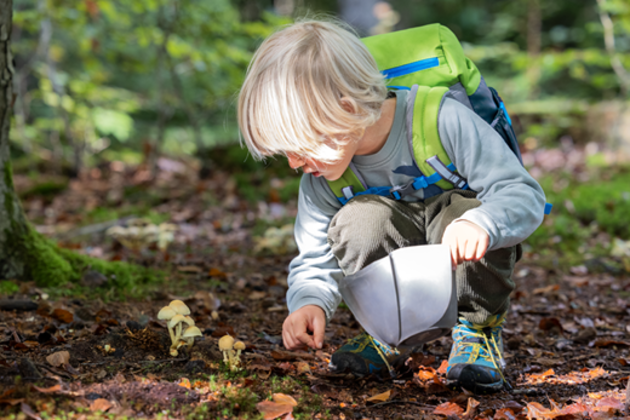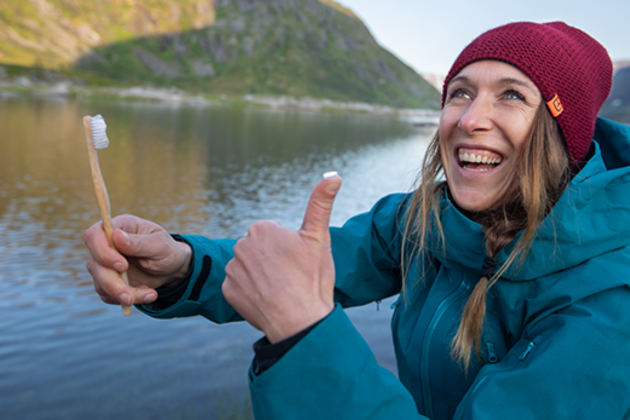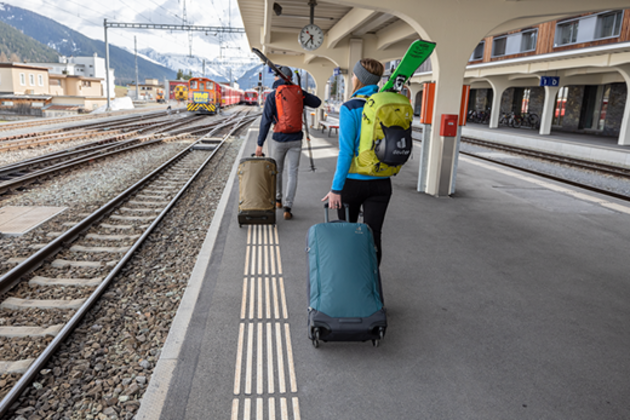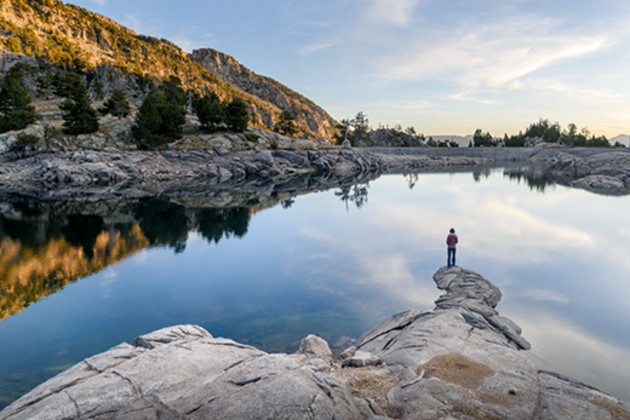Collect trash
The natural world offers sanctuary and is worth protecting for us all. The golden rule is to leave it in better condition than we find it. Carelessly discarded trash isn’t just on roads, trails or paths, but these days it can also be found anywhere in the great outdoors. This is a major environmental problem because plastic items such as straws, bottles and bags aren’t biodegradable. They also put many animals’ lives at risk because they confuse the plastic for food, or nesting material. So we all need to take action, or join one of the many initiatives to help solve the problem:
-
deuter dirtbag – small steps toward the bigger solution
deuter and the DAV’s (German Alpine Association) Summit Club have created a joint initiative to remind everyone that saving the planet starts with small acts. The roll-top dirtbag is made of remnants from the manufacture of deuter products, and can be used to put trash in and take it back to the trailhead. For every dirtbag sold, money is donated to a non-profit environmental project in German-speaking countries.
The DAV (German Alpine Association) and Versicherungskammer Bayern (Bavarian Insurance Chamber) have joined forces to educate mountaineers on how to avoid and dispose of waste. Special dispensers were installed for this purpose in the Alpine Club’s cabins in the Alps and lower ranges. Guests can grab one of the red, fully compostable bags made of cornstarch to fill with their own and anyone else’s trash and take it back down the valley with them.*
*alpenverein.at
This trend started in Sweden and is all about picking up trash while jogging. What was originally a much-ridiculed initiative started by one individual, now has a global fanbase. It’s fun to stay fit and make society a better place at the same time. Major plogging challenges now take place and some companies are even using these types of events to improve co-worker and customer relations. The sport also has a sibling called ‘pliking’, which involves collecting trash while hiking.*
*Plogging
Beach clean-ups really are a Herculean task, but tens of thousands of people volunteer worldwide every year. They pick up trash on beaches and then dispose of it properly. Over the past 30 years, non-profit environmental advocacy group Ocean Conservancy has picked up 136 m kilos of trash. There are lots of small organizations that desperately need volunteers to help out.
Lunch boxes and beeswax wraps
Reusable containers, or even plastic-free options like beeswax wraps to keep food fresh save a lot of waste. These can be used again, keep food fresh for a long time and are very easy to make yourself. Using your own cutlery, or cups, is also less wasteful when ordering an ice cream or coffee to go.
Water bottles
Stainless steel bottles keep hot drinks hot and cool ones cold. And having your own bottle saves loads of plastic waste.
Eco-friendly outdoor stoves
Campfires are prohibited almost everywhere because they can spark forest fires too easily. If you’ve relied on portable camping gas stoves until now, it’s worth remembering that they’re made of nonrecyclable and therefore ecologically harmful components. Which is why you can now get portable stoves in the shape of mini foldable wood stoves fired with pine cones, branches and twigs.
Marked trails
Not straying from marked trails protects habitat for flora and fauna and soil from erosion. Environmental agencies and volunteers spend a lot of time creating and maintaining these trails and paths. If there are no paths and just trail markings, walk carefully and treat flora and fauna with respect. Imagine what mountains would look like if there were no specified routes. The scenery wouldn’t be as spectacular and erosion would destroy everything.
Call of nature
All of us have been caught out and needed the bathroom in the great outdoors at some point. But personal hygiene and environmental protection can exist together. Bury everything well and use as little toilet paper as possible, and make sure the paper you have is fully biodegradable. Paper-like items such as tampons, pads, wet wipes, tissues, and diapers are all no-gos. Put them in a bag and take them home with you.
Eco-friendly sport
What types of sport are particularly sustainable? Any kind of sport that takes place outdoors, but there are huge differences here too. Jogging is definitely much more sustainable than downhill skiing. The less that sportspeople interfere with nature and the more responsible they are the better. When biking or hiking, it’s important to stick to the rules, keep an eye on what lies ahead and not cause any unnecessary skid marks. When climbing, stay on designated routes, not just for your own safety, but to conserve the habitat of rare species of animals and plants. Focus on protecting flora and fauna when engaging in water sports too, for example, let sunscreen soak in before you get in the water. All of us bear responsibility for our actions. We need to do everything in moderation and respect the environment and other people at all times.


